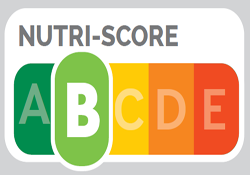France becomes one of the first countries in Region to recommend colour-coded front-of-pack nutrition labelling system

Santé publique France
France’s recent decision to recommend the Nutri-Score system, a straightforward labelling system that uses colour codes to guide consumers at a glance on the nutritional value of food products, marks an important achievement for nutrition in the WHO European Region. It will build on other ongoing efforts in the country to create healthy food environments.
Labelling systems to guide consumers to healthier options
The WHO European Food and Nutrition Action Plan 2015-2020 calls for countries to develop and implement front-of-pack labelling (FOPL) systems that are easy-to-understand and provide additional interpretation of nutritional information to consumers. By guiding consumers to healthier options and acting as an incentive for food operators to reformulate their products, labelling can contribute to improving the nutritional quality of diets. This is important in the context of the high burden of diet-related noncommunicable diseases and obesity across the European Region.
France’s decision to recommend the Nutri-Score system (also referred to as 5-Colour Nutrition Label or 5-CNL) makes it only the second country in the Region to move towards implementing colour-coded FOPL labelling systems for nutritional information. The United Kingdom already recommends traffic light labelling, a system that uses red, amber and green to indicate levels of fat, salt and sugar contained in food products. The Nutri-Score system that France intends to use employs a nutrient profiling system, based on the UK Food Standards Agency model, and classifies foods and beverages according to five categories of nutritional quality, indicated via a colour scale ranging from Green (grade A) to red (grade E).
Taking evidence-based action to improve nutrition
France’s robust use of evidence to inform this decision should be commended, including a study that compared the validity of 4 different nutrient labelling systems and concluded that the Nutri-score system clearly stood out as the most consumer-friendly scheme. Use of the label was also associated with a better nutritional profile of supermarket purchases among study participants.
WHO/Europe congratulates France on taking this step towards increasing consumer-friendly labelling. Evidence now from France and elsewhere shows that this type of labelling can contribute to informing healthy choices, meeting growing consumer demands for information on healthier options and limiting the consumption of foods high in energy, saturated fats, sugar or salt, in the context of an overall improvement in the nutritional quality of diets.



